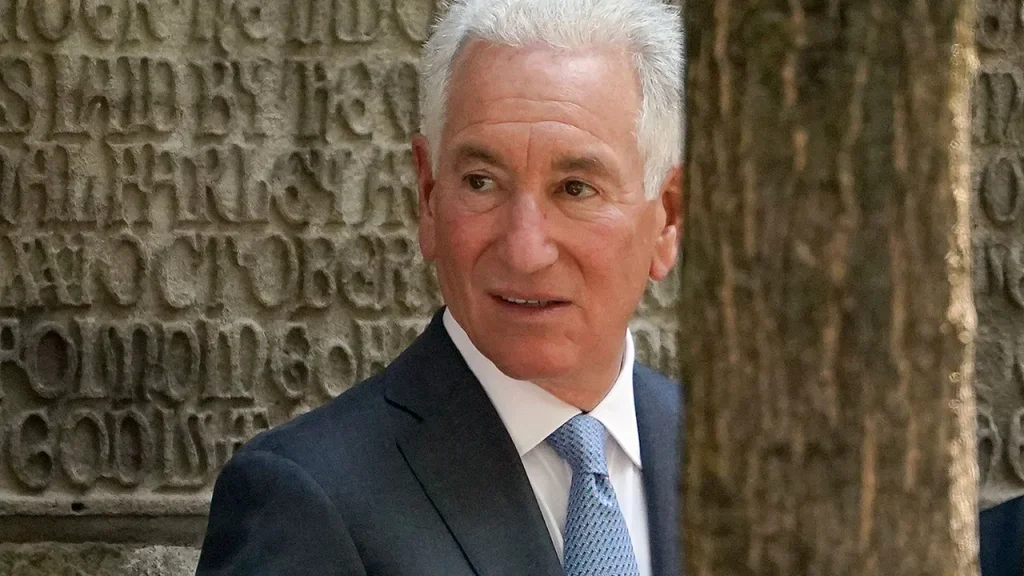U.S. Ambassador’s Comments on Antisemitism Spark Diplomatic Tension with France
In a bold move that has ignited diplomatic tensions between longtime allies, U.S. Ambassador Charles Kushner has been summoned to the French Ministry for Europe and Foreign Affairs following his letter to President Emmanuel Macron criticizing France’s approach to combating antisemitism. The controversy centers around Kushner’s assertion that French government statements about recognizing a Palestinian state have emboldened extremists and endangered Jewish communities throughout France. This diplomatic confrontation highlights the delicate balance between addressing legitimate concerns about rising antisemitism and respecting national sovereignty, all against the backdrop of the ongoing conflict in Gaza and divergent approaches by French and American leadership toward Israel.
The heart of Ambassador Kushner’s criticism lies in his declaration that “anti-Zionism is antisemitism – plain and simple,” a statement that directly challenges France’s position on the Israel-Palestine conflict. In his letter, Kushner urged President Macron to take decisive action by enforcing hate-crime laws without exception, ensuring the safety of Jewish institutions, and abandoning steps that might legitimize Hamas. The timing of this critique comes as France has reported an alarming rise in antisemitic incidents following Hamas’ October 7, 2023 attack on Israel, creating a charged atmosphere where concerns about Jewish safety intersect with complex geopolitical considerations. Kushner’s letter appears to draw a direct correlation between France’s diplomatic positions regarding Palestinian statehood and the safety of French Jews, a connection that French officials vehemently reject.
France’s response has been swift and firm, with the foreign ministry labeling Kushner’s allegations as “unacceptable” and a violation of international law that interferes with France’s internal affairs. The ministry defended its record, stating that French authorities have “fully mobilized” to combat the rise in antisemitic acts and deeming such acts “intolerable.” This forceful rejection indicates the depth of France’s frustration with what it perceives as inappropriate commentary from a diplomatic representative. The ministry further expressed disappointment that such allegations “fall short of the quality of the transatlantic partnership between France and the United States and of the trust that must prevail between allies,” signaling that the issue transcends this specific incident and touches on the broader relationship between the two nations.
The U.S. State Department, however, has stood firmly behind Ambassador Kushner, with spokesperson Tommy Pigott affirming that “Ambassador Kushner is our U.S. government representative in France and is doing a great job advancing our national interests in that role.” This unequivocal support suggests that Kushner’s comments reflect an official position rather than a personal stance, potentially deepening the diplomatic rift. The situation is further complicated by the personal connections at play: Charles Kushner is the father of Jared Kushner, who is married to former President Donald Trump’s daughter Ivanka. Given former President Trump’s staunch support for Israeli Prime Minister Benjamin Netanyahu, in contrast to President Macron’s more critical stance, these family ties add another layer of complexity to an already fraught diplomatic exchange.
The controversy emerges against a backdrop of significant differences between French and American approaches to the ongoing conflict in Gaza. President Macron has been increasingly critical of Israeli Prime Minister Netanyahu and supportive of Palestinian statehood, while former President Trump, whose family connections to Ambassador Kushner are well-documented, has consistently backed Netanyahu’s government. These divergent positions reflect broader differences in how the two nations approach the complex question of resolving the Israeli-Palestinian conflict, with France more aligned with traditional European support for a two-state solution and the Trump administration having taken unprecedented steps to support Israeli positions, including moving the U.S. embassy to Jerusalem and recognizing Israeli sovereignty over the Golan Heights.
The summoning of Ambassador Kushner represents more than just a diplomatic spat; it underscores the delicate balancing act that nations face in addressing antisemitism while maintaining their sovereign right to formulate independent foreign policies. France’s assertion that it has taken meaningful steps to protect its Jewish citizens stands in tension with Kushner’s implication that these efforts are undermined by France’s stance on Palestinian statehood. As antisemitic incidents continue to rise globally, this confrontation raises important questions about how nations can effectively combat hatred while navigating complex geopolitical realities. The incident may serve as a catalyst for deeper dialogue about these issues, or it may further strain relations between two nations that have historically been strong allies despite occasional disagreements on international matters. Whatever the outcome, this diplomatic tension highlights the profound interconnections between domestic security concerns and international policy positions in our increasingly complex global landscape.















